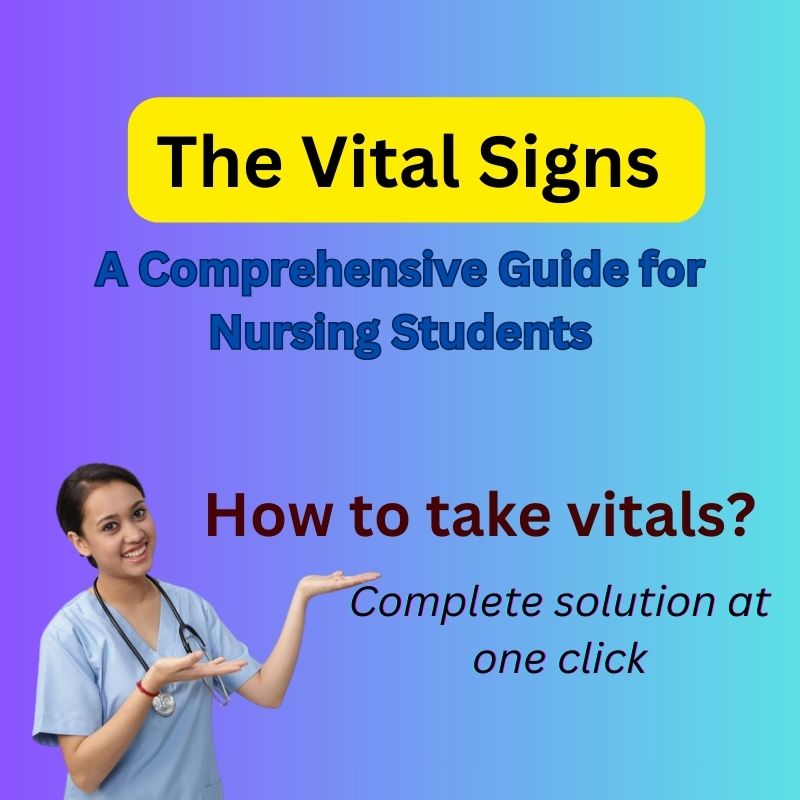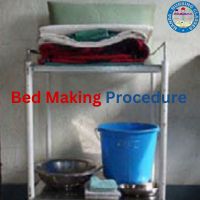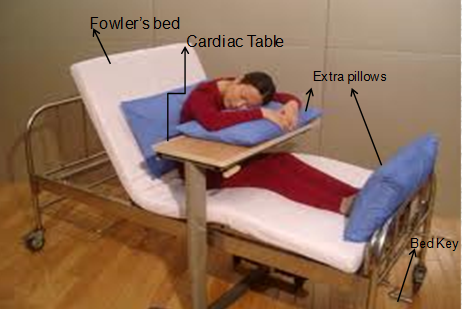Oral Medication Administration Introduction
When someone is ill, he looks for various health-related methods to cure or maintain his health. A drug is a substance used in the diagnosis, treatment, cure, relief, or prevention of health changes. Safe and accurate administration of medications is the most important and primary responsibility of nurses. Many problems can arise if medicines are not managed properly. Therefore, we will know all the important facts about the medicine. So let us see in how many ways medicines are given to the patient.

Oral Medication Definition
Giving medicines to the patient through mouth for prophylactic and curative effects is called oral medication.
Routes of administration of medicines
- By mouth (Oral)
- By placing the medicine under the tongue (Sublingual & Buccal)
- By Vapor or Steam (Inhalation and Nebulization)
- Giving medicine into the body by injection (Potential route)
- Topical administration
Purpose of oral medication
- Administer drugs or therapeutic substances via the mouth.
- Allows for absorption into the bloodstream through the gastrointestinal tract.
- Prescribed to treat diseases, alleviate symptoms, manage chronic conditions, prevent infections, or promote overall health and well-being.
Advantages of oral medication
Oral medicine for the health care of any person or patient Giving has the following benefits:
- Giving medicine orally is the safest and most convenient way.
- Giving medicine orally is an effective method.
- There is no pain while giving the medicine.
- The patient does not have any kind of stress while taking the medicine.
- This is the easiest way to give medicine.
- Whether the patient has very little or no allergic reaction after taking the medicine, it also depends on the health of the patient.
Disadvantages of oral medication
There are some advantages of giving medicines orally for the health care of any person or patient and there are also some disadvantages which are as follows:
- Sometimes the patient does not know how to swallow the medicine.
- Sometimes the medicine is only partially absorbed.
- Sometimes the medicine may irritate the gastric mucosa of the stomach and cause vomiting or diarrhea and the medicine may not have the desired effect.
- Some medicines may cause unpleasant tastes or odors.
- The medicine cannot be given before diagnostic tests or surgical procedures.
- Sometimes if the patient is not able to take the medicine due to oral surgery, nausea and vomiting.
General instructions before administering the medicine
- Identify the patient by checking the medicine card.
- Before giving the medicine, check the instructions written by the doctor.
- Check the medicine before giving it.
- Check the expiry date of the medicine.
- Shake liquid medicine before giving it.
- Do not put the medicine back in after taking it out of the container.
- Wipe the mouth of the liquid medicine bottle, close it tightly and keep it in its proper place.
- When taking tablets or capsules, do not touch them with your hands, put them from the container to its lid and then into the medicine cup.
- Do not use the medicine if there is a change in the color, odor and consistency of the medicine.
- Prepare medications just before it is time to administer the medication and do not leave medication in the medication tray without proper identification.
Oral medication procedure articles
A tray containing:
- towel
- Medicine
- A glass medicine measuring container (ounce glass), a spoon or a dropper.
- A glass of water or water in a feeding cup.
- a duster or a towel or cleaning cloth
- Mortar and pestle (for grinding medicine) if necessary
- A kidney tray and a paper bag
- a medicine card
Oral medication procedure
- Health workers wash their hands with soap and water
- The health worker should read the doctor’s order and give only the medicine recorded in the medicine card to the patient. Health workers should also ensure that all medicines are recorded correctly.
- After reading the medicine card, the health worker takes out the medicine from the shelf or takes it out from wherever the medicine is and keeps it in the tray.
- Check the expiry date of the medicine thrice.
- Remove medications as follows:
- First take the tablet or capsule from the bottle into the lid of the container
- Do not touch the medicine with your hands,If it is a liquid medicine (syrup), pour the syrup from the side of the bottle away from the medicine label. drug overdose don’t put
- Wipe the mouth of the bottle with a clean cloth and close it tightly.
- Place card with medicine on medicine tray
- Move the medicine tray towards the patient’s bed
- Identify the patient:
- Ask the patient to repeat his/her name by calling his/her name
- Confirm patient identification with nurses’ records and medication charts.
- position the patient appropriately
- Give the patient a glass of water and ask him to drink some water
- Administer the medicine to the patient by eating or drinking it.
- Ask to drink water after taking medicine
- Health workers should stay with the patient until he or she swallows the medicine.
Keep the following things in mind after taking care of the patient
- After giving the medicine, keep the patient sleeping or sitting in a comfortable position.
- After giving the medicine, keep the patient’s utensils in the proper place.
- After giving the medicine, clean the articles that were used in giving the medicine to the patient and keep it in the appropriate place.
- The patient and the health worker should not forget to wash their hands after giving the medicine.
- After giving the medicine, the health worker or nurse should fill the patient record correctly.
- If the health worker or nurse notices any abnormality in the patient while giving medicines, then record it in his record.
Must Read
👉 Oral Medication Administration 👈
👉 Topical Application Administration👈
👉Intradermal injection procedure👈
👉Subcutaneous injection procedure👈
👉Intramuscular injection procedure👈
👉Intravenous injection procedure👈
Conclusion
The administration of oral medication is a fundamental aspect of healthcare, offering a convenient and effective method of delivering drugs and therapeutic substances to patients. Through ingestion and subsequent absorption into the bloodstream via the gastrointestinal tract, oral medications play a crucial role in treating diseases, managing symptoms, and promoting overall health and well-being. Healthcare providers must ensure proper dosing, patient education, and monitoring to optimize the effectiveness and safety of oral medication administration. Additionally, adherence to established protocols and guidelines is essential to minimize the risk of medication errors and adverse effects, ultimately contributing to improved patient outcomes and quality of care.
Frequently Asked Questions (FAQs):
Is it necessary to take oral medication with food?
Depending on the specific medication, it may be recommended to take it with food to enhance absorption, reduce stomach irritation, or minimize potential side effects. Patients should follow their healthcare provider’s instructions regarding food intake in relation to oral medication.
What should I do if I miss a dose of my oral medication?
If you miss a dose of your oral medication, consult the medication’s prescribing information or your healthcare provider for guidance. In some cases, it may be appropriate to take the missed dose as soon as possible, while in others, it may be best to wait until the next scheduled dose. Avoid doubling doses unless advised by a healthcare professional.
Can oral medications interact with each other or with food?
Yes, oral medications can interact with each other or with certain foods, beverages, or supplements, potentially affecting their absorption, metabolism, or effectiveness. It’s important to inform your healthcare provider about all medications, including over-the-counter drugs and dietary supplements, to prevent potential drug interactions.
What should I do if I experience side effects from my oral medication?
If you experience side effects from your oral medication, notify your healthcare provider promptly. They can assess the severity of the side effects and determine whether adjustments to the medication regimen are necessary. Do not discontinue or adjust your medication without consulting a healthcare professional.
How should oral medications be stored?
Oral medications should be stored according to the instructions provided by the pharmacist or prescribing healthcare provider. Typically, they should be kept in a cool, dry place away from direct sunlight and moisture. Additionally, medications should be stored out of reach of children and pets to prevent accidental ingestion.
Can I crush or split oral tablets if I have difficulty swallowing them whole?
Some oral medications are formulated for extended or controlled release and should not be crushed or split without consulting a healthcare professional, as it may alter their efficacy or cause adverse effects. If you have difficulty swallowing oral tablets, discuss alternative dosage forms or administration methods with your healthcare provider.
If you have any queries, feel free to ask in the comment section, our experts will give you valuable suggestions



